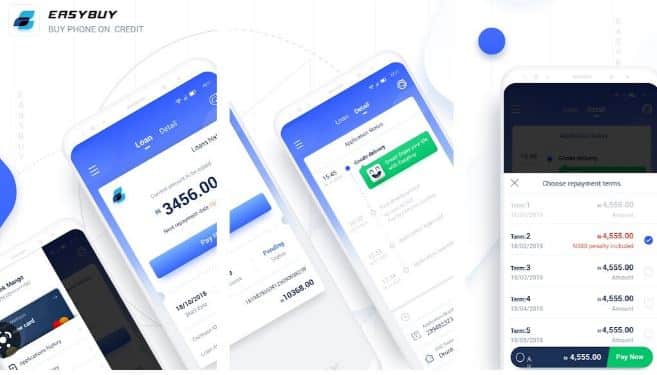You cannot look at college being a huge expense and not consider it something you must do. You just have to go to college to better your future. You just need to act smart and look for some student loans to ease the journey. For those who qualify for federal student aid, the government pays up to $31,000 per year in tuition and fees. Making this payment can be difficult if you don’t have access to adequate funds. However, there are several options in order to get the money you need for college.
One option is getting a loan from your school through their financial aid office or elsewhere. This is not always possible or appropriate for everyone, and some schools offer other resources such as grants and scholarships that may help cover tuition out-of-pocket costs. If a scholarship doesn’t cover all the expenses of your education, then you might consider using a PLUS loan to finance your education. Loans like these can be borrowed up to the full cost of attendance minus any other assistance received from other sources.
Types of Student Loans
Loan options like these are a great way to cover the cost of college, but they don’t provide an avenue for students to finance their education. To get you started on your funding journey, let’s explore some different types of loans that may be right for you:
Private Student Loan:
This type of loan is made directly with a bank or other institution and features fixed interest rates and monthly payments. Private student loans can be used to cover both tuition and living expenses during the academic year.
Federal Subsidized Loan:
These funds are provided by the government as part of a federal loan program. The interest rate is typically lower than what you would pay on an unsubsidized loan offered by private institutions, and repayment is deferred for up to three years after graduation.
Federal Unsubsidized Loan:
These funds are provided by the government as part of a federal loan program. You will have to pay interest on this type of loan in addition to principal, which can make it difficult to repay without additional sources of income.
Private Unsubsidized Loan:
These funds are provided by private financial institutions as part of a private education financing option. Interest rates tend to be higher than federal unsubsidized loans.
How to Apply for Student Loans
Unlike scholarships or grants, student loans carry dues that need to be paid back. There is a lot of paperwork involved in getting a loan, and it is important to realize that you will be expected to make payments on your loan for the duration of your repayment period.
To apply for student loans, you will need to fill out the Free Application for Federal Student Aid (FAFSA) form which is available online at https://studentaid.gov/h/apply-for-aid/fafsa . This form will ask you about your family’s financial situation and other factors such as your citizenship status that can affect eligibility for federal aid. Your application will then be reviewed by a financial aid officer at a participating school who will determine whether you are eligible for federal funds.
A Word About Paying Back Your Student Loan
You can get any of these two types of student loans in the US which are Private and Federal student loans: While the government guarantees that you’ll be able to get back your loan if you don’t pay it back, there are other ways to avoid defaulting on your debt. Here are some tips for avoiding defaulting on your loan when you don’t have the funds to cover it all in one go:
Start paying as soon as possible. If you can’t pay back your entire loan in one payment, try making smaller ones over time.
Request a deferment or forbearance from your lender (if applicable). These will let you postpone payments for up to three years at a time and reduce interest rates by about 1-2 percentage points during that period.
Contact the Department of Education’s National Student Loan Data System (NSLDS) before going into default. NSLDS pulls information from lenders’ records and helps borrowers avoid missing payments due to identity theft or mistake on their part.
If it feels like you’re not getting anywhere with these options, contact a student loan counselor at 800-4-FEDAID (800-433-3243) or visit StudentLoans.gov
Tips and Warnings on Student Loans
If you’re considering taking out a student loan, it’s important to do your research. A student loan can be among the most difficult financial burdens you’ll have to tackle. They can also be one of the most beneficial investments in your future. Below are some tips and warnings on student loans that you should consider when deciding whether or not they’re right for your situation.
– Know how much money you need: It’s important to determine how much you require for college with an estimate of what your future earnings will be if you graduate with a degree in hand.
– Take advantage of grants and scholarships: Some colleges offer merit-based scholarships based on grades, test scores, and other factors. Be sure to check if these awards exist at your school before applying for any kind of financial aid from the school or outside sources like a private institution or online lender. Other types of scholarships include grants offered by private institutions and online lenders, as well as federal student loans such as those available through the PLUS program
– Don’t forget about work study programs: Many schools have work study programs that allow students to earn money while they’re still in school so they don’t have to take out loans while they’re enrolled.
Advantages of Student Loans
There are many advantages to taking out a loan for school. For example, the government may guarantee your loan, which means it is unlikely that you will be asked to return the money you borrow. Additionally, if you have a student loan, you can get up to six deferments from repaying the loan during your college career. Another advantage of borrowing money for college is that interest rates are typically lower for these loans than for credit cards or other forms of debt. This means that if you do not earn enough income to pay off your student loans quickly or in full, then they will accumulate less interest over time and become easier to repay over time.
These considerations may make it worth considering taking out a student loan instead of using credit cards or other forms of debt while pursuing your education.
Disadvantages of Student Loans
Not everyone is eligible for student loans. It depends on your financial history, the type of degree you’re pursuing, and what types of loans you can qualify for.
As with any loan, there are also a number of limitations to consider as there are with any consumer loan such as credit cards or mortgages. You will be required to repay the loan over a fixed period of time after graduation, and interest rates on student loans tend to be higher than other consumer loans. In addition, it’s important that you understand the terms of the loan and know how much you’ll owe before taking care of the application process.
One of the biggest disadvantages to student loans is that they usually require repayment upon graduation. This means debt payments will continue even if your education doesn’t lead to employment in that field or if you decide not to continue your education past a certain point.
If this is something that may bother you, then it might be beneficial for you to explore options such as scholarships or grants that do not require repayment after graduation. There are also some grants that provide scholarships without requiring a repayment agreement once your education has been completed (for example Pell Grants and National Health Service Corps Scholarship).
[bs-quote quote=”For the past 33 years, I have looked in the mirror every morning and asked myself: ‘If today were the last day of my life, would I want to do what I am about to do today?’ And whenever the answer has been ‘No’ for too many days in a row, I know I need to change something.”” style=”style-2″ align=”center” color=”#dd9933″ author_name=”Steve Jobs” author_job=”Apple co-founder” author_avatar=”https://advancefinancialtips.com/wp-content/plugins/blockquote-pack-pro/img/other/steve-jobs.png” author_link=””][/bs-quote]
Conclusion.
Students who are attending college have to come up with the money for their tuition. Unfortunately, that doesn’t always happen. However, there are several options in order to get the money you need for college, including getting a loan from your school or from a lender outside of school.
In this post, we cover six reasons why student loans are important to your future success. Keep reading for more on how student loans help you realize your dreams!
Student debt has been rising over the past few years as students graduate and take on more debt than ever before. In fact, more than 3 million Americans graduated with an average debt load of $40,000 in 2015-16. That’s a serious amount of money, not to mention the financial struggles associated with paying back such a large sum.
In order to avoid these problems and minimize your future expenses related to higher education, it will be necessary to find ways to finance it yourself. Graduating with less debt is highly beneficial financially and psychologically as well—not having that weight on your shoulders can free you up mentally and physically to live life on your own terms.
Luckily, there are plenty of financing options available depending on which type of financial aid you’re eligible for.














[…] Read Also: How To Get Student Loans For College […]